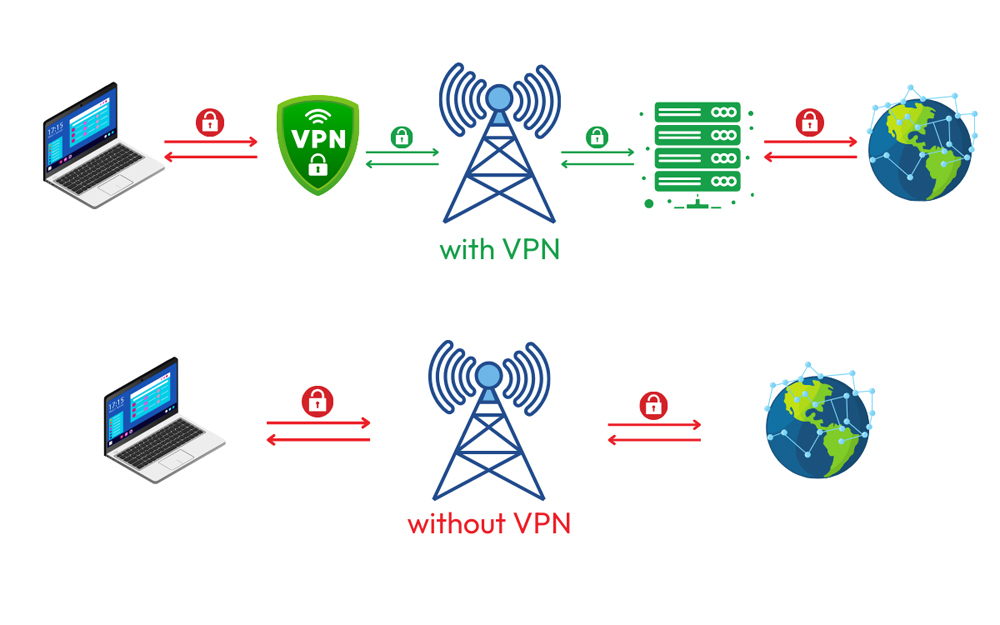In today’s digital world, privacy is often taken for granted or dismissed as unimportant. Many people believe that since they have “nothing to hide,” they don’t need to worry about their online activity being tracked. However, this mindset ignores the larger consequences of mass surveillance, data collection, and the erosion of personal freedoms. Just as you wouldn’t leave your house with the doors unlocked or your windows open for strangers to look inside, you shouldn’t treat your online presence any differently. Privacy is not about hiding, it’s about control over your personal information and protecting yourself from exploitation.
The Myth of “Nothing to Hide”
A common argument against privacy concerns is: “I have nothing to hide, so why should I care?” This reasoning is flawed because privacy is not about secrecy but about autonomy and security. If you wouldn’t be comfortable having your employer, family, or a random stranger go through your phone or read your private messages, then you already understand the importance of privacy. Additionally, even if your data isn’t used against you today, it might be in the future. Governments change, policies shift, and a harmless search or opinion expressed today could become incriminating tomorrow.
Leaving your digital life exposed is akin to leaving your home wide open. Even if you don’t have anything “valuable” inside, you wouldn’t want just anyone walking in and going through your belongings. Similarly, online surveillance and data collection aren’t just about catching criminals—they create detailed profiles of people that corporations and governments can use for control, manipulation, or profit.
How Surveillance Affects Our Lives
Governments and corporations collect vast amounts of data through internet service providers (ISPs), social media platforms, smart devices, and online tracking mechanisms. This data is used for various purposes, from targeted advertising to law enforcement profiling. In authoritarian regimes, surveillance can be a tool for political oppression. Even in democratic nations, the knowledge that everything you do online is tracked can create a chilling effect on free speech and personal expression.
Think about how recommendation algorithms shape what you see online. Your searches, clicks, and conversations influence what is promoted to you. This creates echo chambers where you only see content that aligns with your previous activity, limiting exposure to new perspectives and information. We can see results of these echo chambers in todays political environment. Additionally, companies like Google, Meta (Facebook), and Amazon use this data to maximize profits, often at the expense of user rights.
Alternatives to Mainstream Products

Fortunately, there are privacy-focused alternatives to many mainstream services. These tools can help you regain control over your online presence without sacrificing convenience:
- Proton Suite (ProtonMail, ProtonVPN, ProtonDrive): Encrypted email, VPN, and cloud storage that prioritize user privacy.
- Zen Browser (with privacy extensions like uBlock Origin and Privacy Badger): A browser designed with privacy in mind, blocking trackers and minimizing data collection.
- DuckDuckGo or Brave Search: Private search engines that don’t track your queries like Google does.
- Signal or Element: Secure messaging apps that offer end-to-end encryption, unlike WhatsApp or Facebook Messenger, which collect metadata.
- Linux-based operating systems: Distros like Tails, Fedora, and Arch offer better security than Windows or macOS.
By switching to these alternatives, you reduce the amount of personal data that corporations and governments can collect about you.
The Reality of VPNs

VPNs (Virtual Private Networks) are often marketed as a complete privacy solution, but it’s important to understand their limitations. A VPN encrypts your internet traffic and routes it through a remote server, masking your IP address. This prevents your ISP and local network from seeing your activity, which can be useful for bypassing censorship and improving security on public Wi-Fi. However, it does not make you anonymous.
Many commercial VPN providers log user data despite claiming otherwise. For example, companies like NordVPN and others have been caught collecting and selling user data. Instead of blindly trusting any VPN service, it’s better to use a no-log VPN with a strong reputation, such as ProtonVPN or Mullvad, or even set up your own VPN using a private server.
A VPN should be part of a broader privacy strategy, not a single solution. Even with a VPN, websites can still track you through cookies, browser fingerprints, and third-party scripts. To achieve real privacy, combining a VPN with other tools like a privacy-focused browser and encrypted communication services is essential.
Practical Steps to Improve Your Privacy
While achieving total online anonymity is difficult, taking simple steps can significantly improve your privacy:
- Use end-to-end encrypted services for email, messaging, and cloud storage.
- Regularly clear cookies and browsing data or use browsers with built-in tracker blocking.
- Avoid social media tracking by using privacy extensions, limiting data-sharing settings, custom modded APKs (If you use Android).
- Be mindful of smart devices that collect data in the background, such as smart TVs and voice assistants.
- Consider using aliases or burner emails for online sign-ups to avoid linking everything to your real identity. (Included in the Proton Suite with ProtonPass)
Final Thoughts
Privacy is a fundamental right, not a privilege. The “nothing to hide” argument is a dangerous misconception that ignores how data collection affects everyone, regardless of their intentions. Surveillance is not just about criminals, it’s about power, control, and profit. By taking steps to protect your data, you reclaim control over your digital life and reduce your vulnerability to manipulation and exploitation.
The tools are available, but it’s up to individuals to take privacy seriously. Whether you switch to encrypted services, use a more private browser, or simply become more aware of how your data is being collected, every step matters. The internet should be a space for freedom, not constant monitoring. Take control of your privacy before someone else does it for you.


Leave a Reply